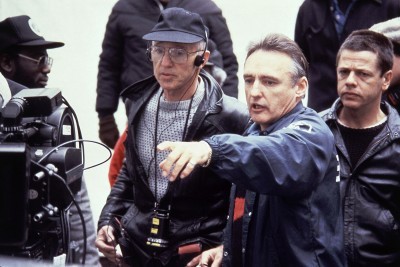-
Tips for becoming a good boxer - November 6, 2020
-
7 expert tips for making your hens night a memorable one - November 6, 2020
-
5 reasons to host your Christmas party on a cruise boat - November 6, 2020
-
What to do when you’re charged with a crime - November 6, 2020
-
Should you get one or multiple dogs? Here’s all you need to know - November 3, 2020
-
A Guide: How to Build Your Very Own Magic Mirror - February 14, 2019
-
Our Top Inspirational Baseball Stars - November 24, 2018
-
Five Tech Tools That Will Help You Turn Your Blog into a Business - November 24, 2018
-
How to Indulge on Vacation without Expanding Your Waist - November 9, 2018
-
5 Strategies for Businesses to Appeal to Today’s Increasingly Mobile-Crazed Customers - November 9, 2018
Oscar-winning cinematographer Haskell Wexler dies at 93
Famed Hollywood cinematographer Haskell Wexler sadly passed away on Sunday (December 27) at his home. The director of photographer’s son Jeff Wexler confirmed his father’s death, writing on his official website, “It is with great sadness that I have to report that my father, Haskell Wexler, has died”.
Advertisement
Wexler, who maintained strong ties to the Hudson Valley, died peacefully in his sleep, his son, Oscar-nominated sound man Jeff Wexler, told The Associated Press.
“I hope we can use our art for peace and for love”, Wexler said, when accepting his Academy Award in 1967.
The Oscar-winner photographed some of the most influential films of the 1960s and 70s, including the adaptation of “One Flew Over the Cuckoo’s Nest”.
Over his career, Wexler was nominated for five Oscars in the cinematography category and won a pair, first for 1967’s Who’s Afraid of Virginia Woolf? Milos Forman dropped him during the filming of “One Flew Over the Cuckoo’s Nest” and Wexler shared the cinematography credit with Bill Butler.
Describing his work in an interview that year with American Cinematographer magazine, Wexler said: “Movies are a voyeuristic experience”.
Later documentaries he helmed included Bus Rider’s Union, directed with Johanna Demetrakas; Who Needs Sleep, about the danger to film crews of overlong shooting schedules that result in fatigue – and people falling asleep on the road home; and 2013’s Four Days in Chicago, in which he returned to the setting of Medium Cool and his hometown to document the Occupy Movement’s demonstrations against the 2012 NATO Summit.
Haskell began his involvement with the Woodstock Film Festival in 2000, said Laurent Rejto, co-founder of the film festival and director of the Hudson Valley Film Commission. His 1969 Medium Cool mixed documentary and dramatic elements, telling the story of a fictional television photographer (Robert Forster) who covers the violence between Chicago police and protesters at the 1968 Democratic National Convention.
A child of wealth – his father made a fortune in electronics and continued to prosper during the Depression – Wexler was born February 6, 1922, in Chicago. At age 12, he recorded his family’s trip in Mussolini’s Italy together with his family’s residence-film digital camera. He attended UC Berkeley, then made documentary and educational films in Chicago for 10 years before coming to Hollywood. You have to make the audience feel like they are peeking through a keyhole. Darker skin requires a special kind of lighting setup to show up clearly on film, something few directors of photography cared about before Wexler; to capture Poitier in vivid detail, Wexler used innovative lighting techniques that allowed the actor to use a wider range of facial emotions. I think of myself as the audience.
Advertisement
Besides his sons, Haskell is survived by third wife Rita Taggart, an actress and cinematographer, and daughter Kathy.





























